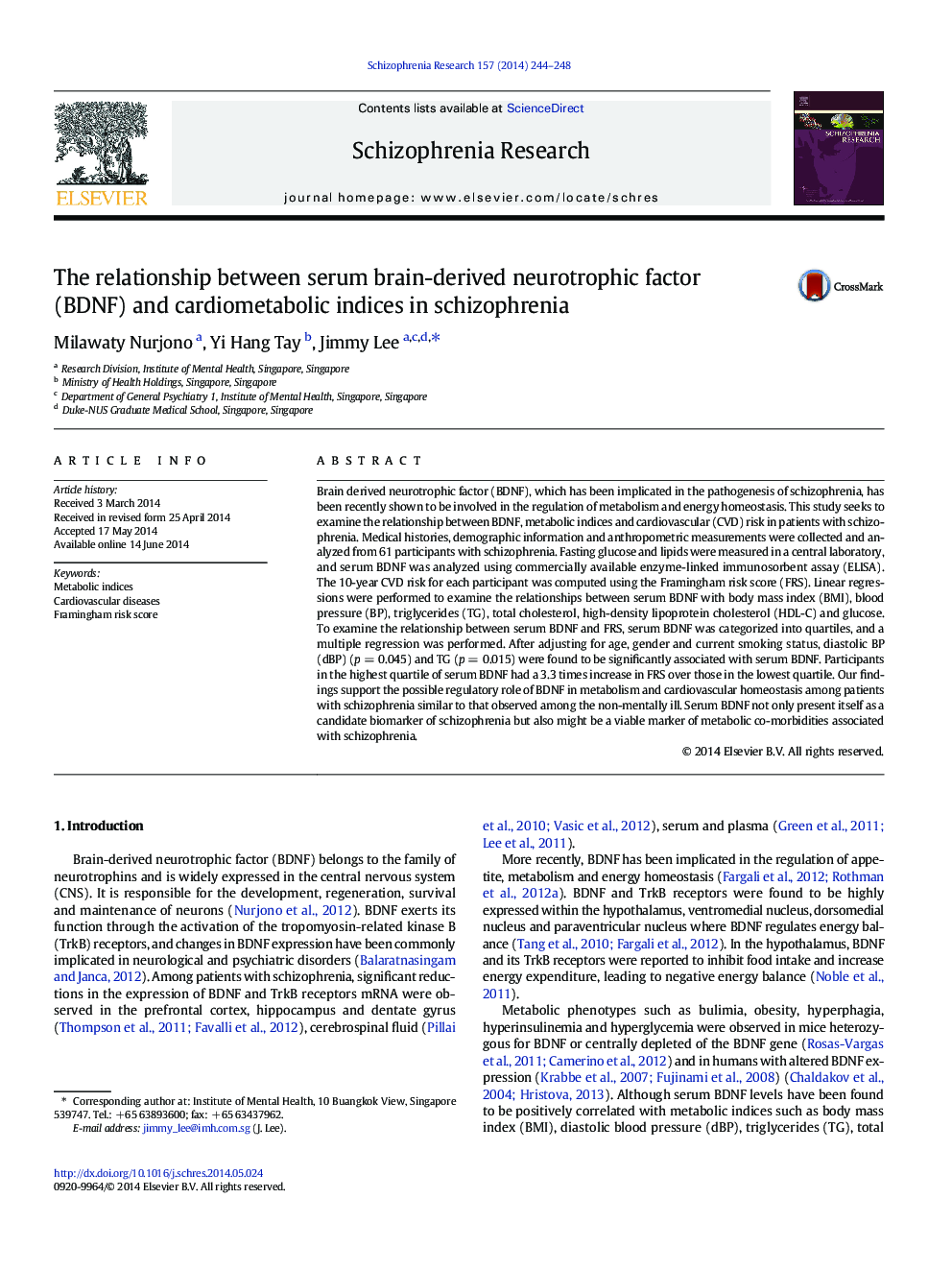| Article ID | Journal | Published Year | Pages | File Type |
|---|---|---|---|---|
| 6825194 | Schizophrenia Research | 2014 | 5 Pages |
Abstract
Brain derived neurotrophic factor (BDNF), which has been implicated in the pathogenesis of schizophrenia, has been recently shown to be involved in the regulation of metabolism and energy homeostasis. This study seeks to examine the relationship between BDNF, metabolic indices and cardiovascular (CVD) risk in patients with schizophrenia. Medical histories, demographic information and anthropometric measurements were collected and analyzed from 61 participants with schizophrenia. Fasting glucose and lipids were measured in a central laboratory, and serum BDNF was analyzed using commercially available enzyme-linked immunosorbent assay (ELISA). The 10-year CVD risk for each participant was computed using the Framingham risk score (FRS). Linear regressions were performed to examine the relationships between serum BDNF with body mass index (BMI), blood pressure (BP), triglycerides (TG), total cholesterol, high-density lipoprotein cholesterol (HDL-C) and glucose. To examine the relationship between serum BDNF and FRS, serum BDNF was categorized into quartiles, and a multiple regression was performed. After adjusting for age, gender and current smoking status, diastolic BP (dBP) (p = 0.045) and TG (p = 0.015) were found to be significantly associated with serum BDNF. Participants in the highest quartile of serum BDNF had a 3.3 times increase in FRS over those in the lowest quartile. Our findings support the possible regulatory role of BDNF in metabolism and cardiovascular homeostasis among patients with schizophrenia similar to that observed among the non-mentally ill. Serum BDNF not only present itself as a candidate biomarker of schizophrenia but also might be a viable marker of metabolic co-morbidities associated with schizophrenia.
Related Topics
Life Sciences
Neuroscience
Behavioral Neuroscience
Authors
Milawaty Nurjono, Yi Hang Tay, Jimmy Lee,
